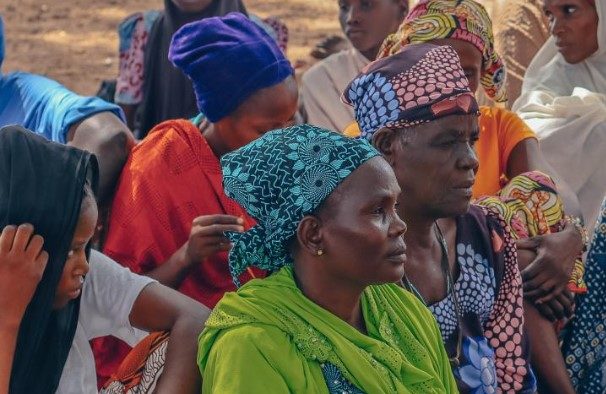Gender-Based Violence in Nigeria: A Major Scourge

Nigerian women suffer violence from various angles—home, workplace, and community. These women are not statistics but are mothers, daughters, sisters, and wives who endure daily suffering because the system fails them.
Gender-based violence (GBV) refers to any type of harm perpetrated against a person or group of people because of their factual or perceived sex, gender, sexual orientation, or gender identity. It is the most persistent yet least evident human rights violation globally, cutting across age, gender, religion, social, and economic boundaries. It is characterized by the abuse of physical, emotional, or financial power and control over victims, thereby deteriorating their health, dignity, confidence, and sovereignty (UNICEF).
The crisis of gender-based violence has indeed intensified globally, with statistics showing that nearly 1 in 3 women have experienced violence in their lifetime, according to the International Federation of Women Lawyers (FIDA Nigeria, 2024). In Nigeria, gender-based violence has escalated alarmingly, with women and girls often bearing the brunt. Disturbing statistics underscore the urgent need for critical discussions on GBV within Nigeria’s public health context.
UNICEF defines GBV in Nigeria to include rape, domestic violence, sexual harassment, child marriage, and female genital mutilation (FGM), representing physical, sexual, psychological, and economic abuse, often stemming from unequal power dynamics between men and women. With approximately 20 million survivors, Nigeria accounts for 10% of the global total of 200 million survivors. It also has the third-highest incidence of FGM worldwide, with the highest risk occurring in the first year of a girl’s life (Nigeria Demographic and Health Survey 2018).
According to the United Nations, common acts of violence against women in Nigeria include sexual harassment, physical violence, harmful traditional practices, emotional and psychological violence, socio-economic violence, and violence against non-combatant women in conflict situations. The challenges of addressing GBV in Nigeria are multifaceted, rooted in cultural, legal, and public health contexts.
Reports by the UN Population Fund (UNFPA) show that nearly 30% of girls in Nigeria have experienced physical violence by the age of 15. The 2018 Nigeria Demographic and Health Survey reported that among women aged 15 to 49, 31% experienced physical violence and 9% experienced sexual violence. Four percent experienced sexual violence before the age of 18, and more than half of the women (55%) who have faced physical or sexual violence never sought help to stop the abuse.
In some parts of Nigeria’s 36 states, findings have shown that GBV cases have recurred in recent years. For instance, in the Northern part of Nigeria, the Salama Sexual Assault Referral Centre (SARC) in Kafanchan, Kaduna State, recorded 3977 cases of Sexual and Gender-Based Violence (SGBV) cases since its inception in 2019.
Also, Lagos State recorded 24,009 cases of gender-based violence in the last few years. The cases include sexual, physical and psychological abuses, and were reported in all the 20 Local Government Areas of Lagos State between January 2019 and December 2023. In addition, Boko Haram’s ongoing attacks in the Northeast have been identified in the UN Secretary-General’s 2023 Annual Report on Conflict-Related Sexual Violence as a ‘major protection concern’, estimating that nearly two-thirds of women in the North-East have experienced one or more forms of SGBV.
A study by Chime et al. (2022) found that the majority (89.9%) of GBV victims in Enugu, Nigeria, were women, and over half (51.4%) of cases were in the age group 20-39 years. Sexual abuse accounted for 56.8% of GBV cases. The study showed an increase in both sexual and physical/emotional violence between 2018 and 2020, with individuals under 19 years old being 23 times more likely to experience sexual violence than those aged 40-59.
Nigerian women suffer violence from various angles—home, workplace, and community. These women are not statistics but are mothers, daughters, sisters, and wives who endure daily suffering because the system fails them. Their pain echoes through hollow promises of justice and protection that are rarely realized. With each passing day, these women are implicitly told that their suffering doesn’t matter, and their rights are disregarded with impunity (FIDA, 2024).
Gender-based violence is incredibly challenging to address in Nigeria. As emphasized by the International Federation of Women Lawyers, the violence Nigerian women endure not only harms them but also destroys families, stifles the nation’s potential, and perpetuates a cycle of poverty and trauma that affects generations.
References
Chime OH, Nduagubam OC, Orji CJ. (2022). Prevalence and patterns of gender-based violence in Enugu, Nigeria: a cross-sectional study. Pan Afr Med J. 2022 Mar 11;41:198. www.pubmed.ncbi.nlm.nih.gov/35685097/
Kafilat Taiwo (2024). Growing Gender-Based Violence in Nigeria, www.dataphyte.com/latest-reports/growing-gender-based-violence-in-nigeria/
Integrated Health Program (IHP) (2024). www.medium.com/@NigeriaIHP_/powerful-partnerships-reducing-and-preventing-gender-based-violence-in-nigeria-996c8ed79d61
United Nations Annual Report (2023). www.unodc.org/conig/en/stories/promoting-accountability-for-sexual-and-gender-based-violence-in-nigeria—international-day-for-the-elimination-of-violence-against-women.html


Hello! I know this iis kind of off topic but I was wondering if you knew where I could
locate a captcha plugin for my comment form? I’m using thhe same blog platform as yours
and I’m having problems finding one? Thanks a lot! https://glassi-greyhounds.mystrikingly.com/
wonderful points altogether, you simply gained a brand new reader.
What could you recommend in regards to your publish that you
simply made a feew days ago? Anyy sure? https://Justhired.CO.In/employer/tonebet-casino/